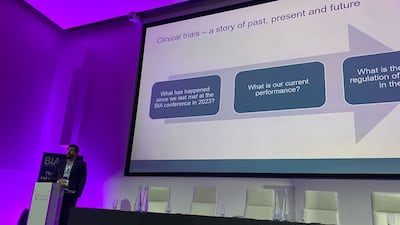North America
United States

The former CDER Director spoke to the Pink Sheet about why a new statutory standard is needed for certain rare disease drug approvals. We lay out some of her thinking in part one of a multi-part series on the topic.

Many speakers at the Galien Forum were uncertain about changes the new Trump Administration could make the Inflation Reduction Act (IRA), National Institutes of Health funding and other areas.

The STAR pilot established in PDUFA VII for efficacy supplements, which was modeled after the popular Real Time Oncology Review program, has not garnered much interest. The agency now is establishing a separate but similar pilot for a small number of original NDAs and BLAs.

US FDA Commissioner Robert Califf offers some thoughts on improving the informed consent process during a Patient Engagement Advisory Committee meeting that reflect concerns informed consent documents are too long and complex, but also do not address everything that may be important to patients.
Canada

The UK’s drug regulator, the MHRA, is exploring new opportunities to work closer with its counterparts from Australia, Canada, Singapore and Switzerland under the ACCESS Consortium group, with a focus on pre-submission scientific advice.

In this third article of a series on new drug reimbursement recommendations by the HTA body NICE, the Pink Sheet finds that fewer innovative medicines are reimbursed in England than in eight other European nations.

The rolling reimbursement reviews that Canada’s Drug Agency introduced as a pilot scheme to speed up patient access to COVID-19 products can now be used for any drug application. The move to open up the mechanism follows prompts by industry.

England’s NICE has “misclassified” HER2-low metastatic breast cancer as a medium severity disease, say AstraZeneca and Daiichi Sankyo, the co-developers of Enhertu. NICE said it would consider a rapid re-appraisal if the companies offered a “fair price” for the drug.